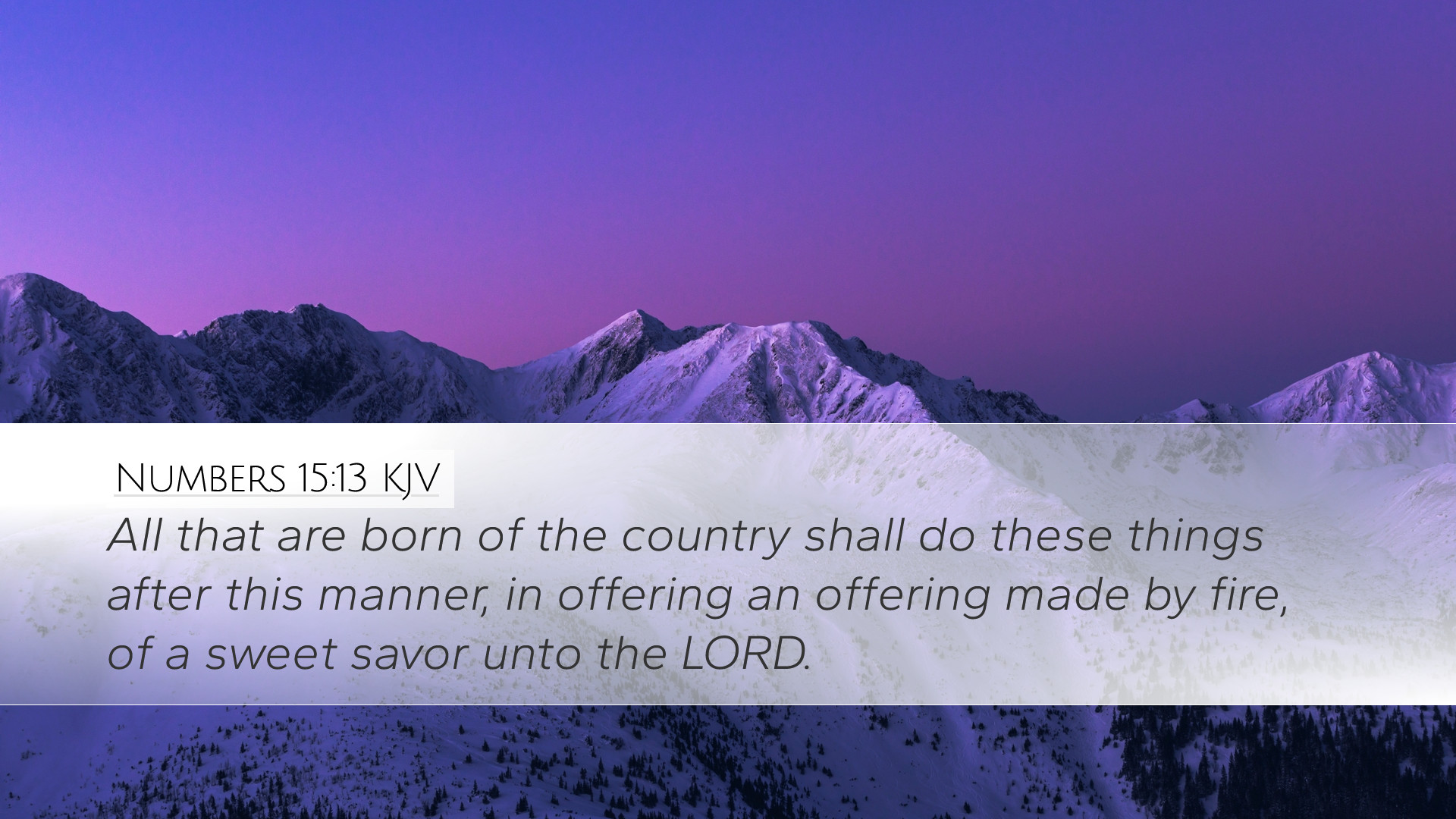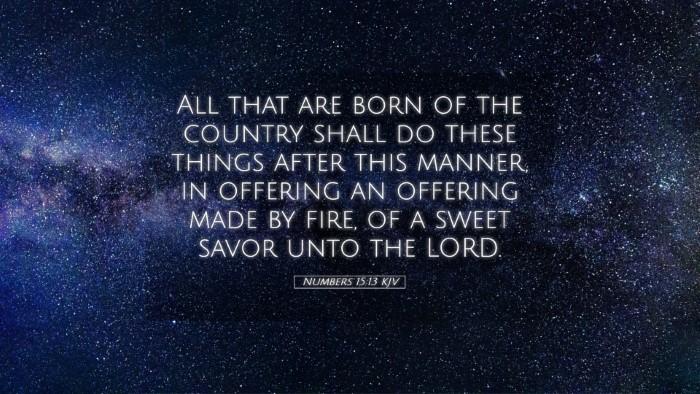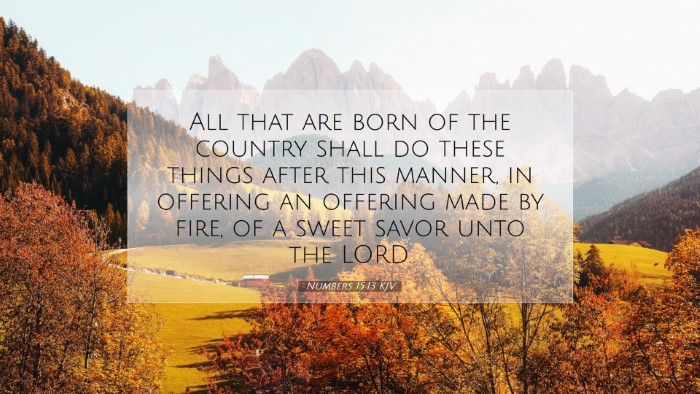Commentary on Numbers 15:13
Bible Verse: Numbers 15:13 - "All who are native born shall do these things in this manner, in presenting an offering made by fire, of a sweet aroma to the Lord."
Introduction
In Numbers 15:13, we encounter a directive that highlights the significance of ritual purity and appropriate offerings within the context of Israel’s covenantal relationship with God. This verse emphasizes the necessity for the Hebrew people to present their sacrifices correctly according to the established laws of worship. The public domain commentaries provide a wealth of insights into the theological and practical implications of this text.
Context and Background
Numbers is a book that deals with the journey of the Israelites as they wander through the wilderness after their exodus from Egypt. It serves as both a record of this journey and a collection of laws meant to govern the community. Matthew Henry notes that this section of Numbers delineates the sacrifices and offerings expected from both native and foreign dwellers among the Israelites, aiming to unify the worship practices under the Mosaic Law.
The Importance of Offerings
Albert Barnes elaborates on how offerings are a means of recognizing God’s sovereignty and provision. The act of presenting an offering is not merely a ritualistic task; it symbolizes deeper spiritual truths about dependence on God, gratitude, and the need for atonement. The offerings made "by fire" highlight the concept of sacrifice, which is foundational in Israelite worship.
Theological Implications
This verse expresses several theological implications worth noting:
-
Covenantal Identity: The phrase "All who are native born" indicates the covenantal identity among the Israelites. Adam Clarke points out that the native-born here refers to those who have a direct lineage to Abraham, Isaac, and Jacob; they were to maintain a distinct relationship with God which necessitated adherence to His commandments.
-
Inclusivity of Worship: The directive implies inclusivity in worship while maintaining a distinction among the people. This also creates a framework where the native-born must set an example for the sojourners, as discussed by Henry.
-
Ritual Purity: The phrase "sweet aroma to the Lord" signifies that the offerings must be pleasing to God, reflecting His holiness. The well-being of the worshiper is intimately tied to the manner in which offerings are presented, which Clarke emphasizes by discussing the consequences of improper worship.
Practical Applications
For pastors, students, and theologians, Numbers 15:13 serves as a reminder of the importance of sincere worship. The ways in which offerings are presented may transform across ages and contexts, yet core principles remain significant:
-
Integrity in Worship: It challenges modern believers to engage in worship that honors God’s requirements with integrity and sincerity. This parallels contemporary discussions about worship authenticity.
-
Understanding of Sacrifice: The understanding of sacrificial systems in ancient Israel illuminates the ultimate sacrifice of Christ, which provides a lens through which to view God's grace in our worship practices today.
-
Community Aspect of Worship: The communal aspect of this directive serves as a model in today’s congregational environments, emphasizing that worship is meant to be shared and influenced by a community seeking God together.
Conclusion
Numbers 15:13 stands as a poignant reminder of the essence of worship within the context of the covenant community. As we delve into the nuances of this verse through the insights of Matthew Henry, Albert Barnes, and Adam Clarke, we uncover rich layers of meaning that inform our understanding of how to approach God in reverence and sincerity. The call to offer a "sweet aroma" to the Lord beckons believers to evaluate their motivations, methods, and the heart behind their worship, aligning closer to the divine expectations of a holy God.


